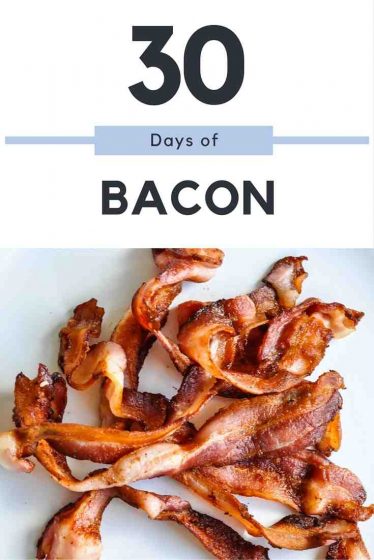Everything is (not) better with bacon. High in saturated fat, just 3-4 slices of bacon is about one-fifth of your daily saturated fat limit. Eating too much saturated fat raises your cholesterol levels and increases your risk of heart disease. Adding to that risk is sodium, of which bacon is plentiful.
What is the healthiest breakfast meat?
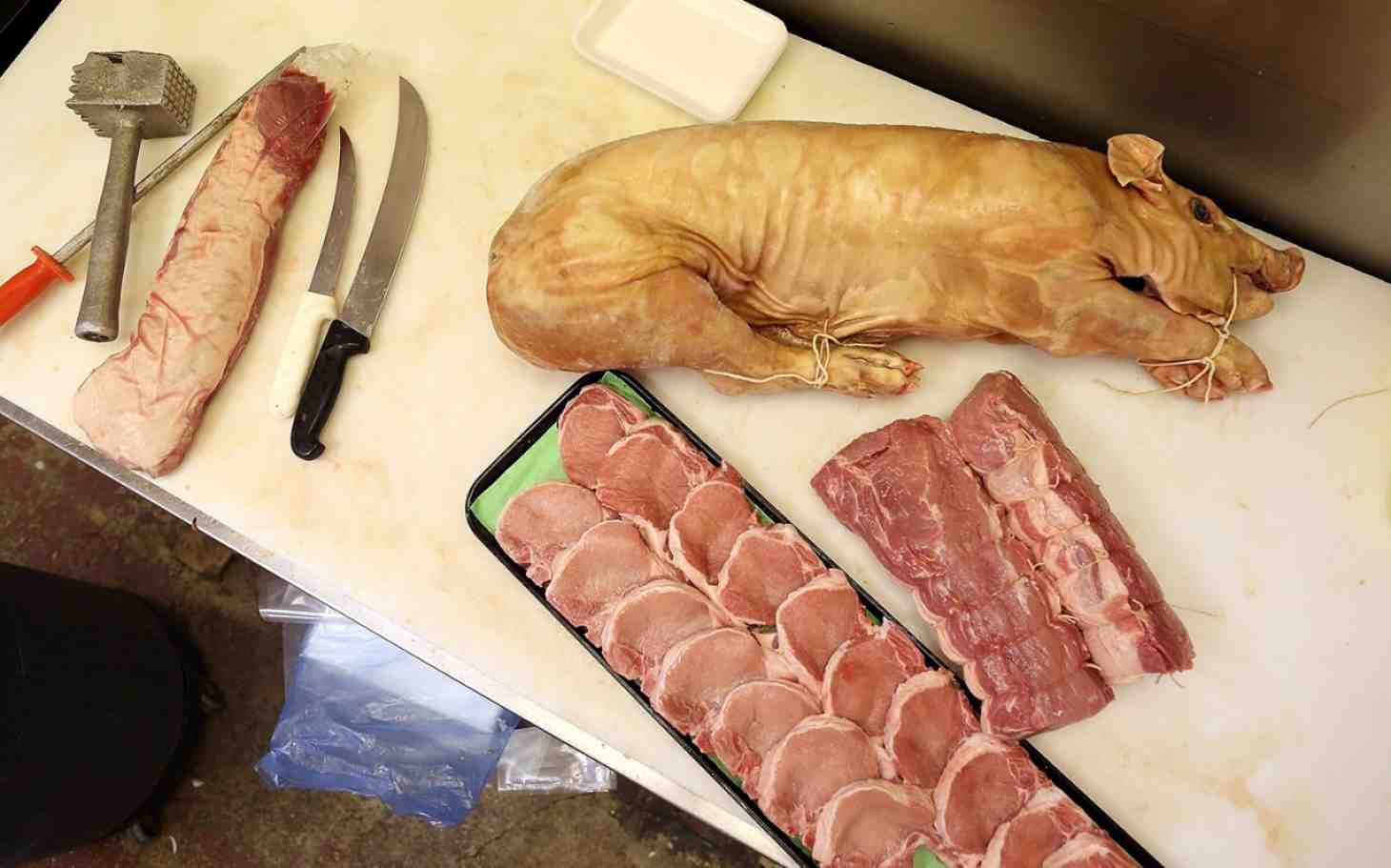
Lean meats, like low-fat turkey with Canadian bacon, low-fat chicken, lean pork, or lean beef, all in moderation, are also a healthy source of breakfast protein and are perfect to add to a protein omelet. This may interest you : Are Smithfield smoked hams fully cooked?.
What is a good healthy meat for breakfast? When looking for unprocessed meats for breakfast, choose lean cuts of beef, chicken, pork, veal, and lamb, as they are lower in fat and higher in protein. Yes, that means you can enjoy a lean cut of steak for breakfast! Don’t forget the fish!
What is the highest protein breakfast meat?
| breakfast protein sources | protein (g) | fat (g) |
|---|---|---|
| Canadian Bacon, 2 oz | 12 | 3.9 |
| Extra Lean Ham, 2 oz | 11 | 1.5 |
| Turkey Bacon, 2 strips | 4 | 6 |
| Light Turkey Sausage, 2 oz | 9 | 10 |
What is a good high protein breakfast?
A well-balanced meal high in protein (as well as carbs and fat) can help you stay energized throughout the morning, Jones says. However, it’s easy to find yourself stuck in a high-protein breakfast routine. To see also : Why is bacon and ham pink?. Whatever the reason, scrambled or hard-boiled eggs are the favorite high-protein breakfast for many people.
Which breakfast meat has the most protein?
When looking for unprocessed meats for breakfast, choose lean cuts of beef, chicken, pork, veal, and lamb, as they are lower in fat and higher in protein.
Which is healthier sausage or bacon?
With more calories comes higher fat and protein levels. On the same subject : Can you eat pink ham?. In terms of fat content alone, bacon is the healthier option.
Which is worse for you sausage or bacon?
Some restaurant breakfast items are served with bacon or sausage. And believe it or not, it’s usually best to go for bacon. Although both meats are high in fat and saturated fat, two pieces of sausage cost slightly more calories and fat than three strips of bacon.
Is bacon or sausage better for weight loss?
Does bacon or sausage have more calories? If you count calories, you should take note of this. According to Insider, two pieces of fried bacon contain 80 to 90 calories, while one bratwurst contains 100 calories.
What is the number 1 healthiest breakfast?
The 12 best foods for the morning
- eggs. Eggs are an easy, nutritious breakfast choice. …
- Greek yogurt. Greek yogurt is a great option when you’re looking for a quick breakfast. …
- Coffee. Next to water, coffee is the most popular drink in the world. …
- Oatmeal. …
- Chia seeds. …
- Berry. …
- Cottage cheese. …
- whole grain toast.
What is a full healthy breakfast?
For the most nutritious breakfast, try choosing whole, unprocessed foods from each of the five food groups: fruits, vegetables, grains, protein foods, and dairy. Try to get protein from foods like yogurt (look for varieties with less added sugar), eggs, nuts and seeds, or legumes.
What is the healthiest breakfast and why?
Oatmeal Fruit Nut Butter. The best breakfast contains carbohydrates, protein, healthy fats and fiber. In this combination, the oatmeal provides you with complex carbohydrates and fiber, keeps your blood sugar under control and helps to maintain an ideal bacterial balance in your gut. The nut butter adds protein and healthy fats.
Is bacon OK in moderation?
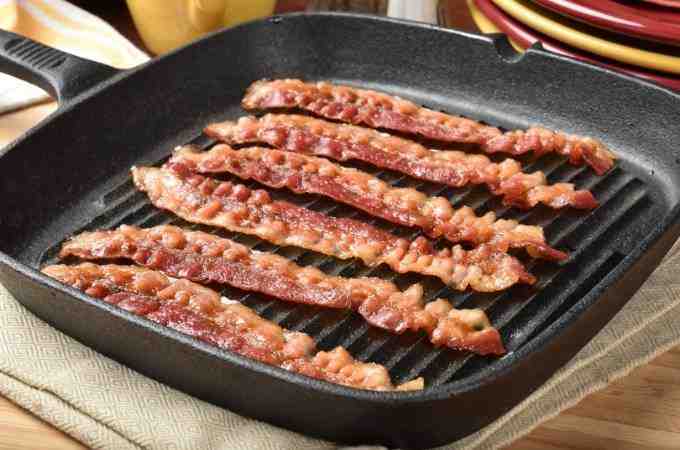
Despite some downsides, you don’t have to eliminate bacon from your diet entirely to be healthy. You can enjoy bacon as part of any healthy diet with the help of one key – moderation. Keep portion sizes in check. Avoid consuming bacon more than a few times a week.
Is bacon healthy in any way? In fact, about half of the fats in bacon are monounsaturated and contain high levels of “heart-healthy” oleic acid. The presence of this high fat content, coupled with plenty of protein, in a traditionally small meal can help you feel full after you eat it and reduce the urge to overeat.
Is it OK to eat bacon occasionally?
You shouldn’t worry about bacon’s high fat content, especially since the typical serving size is small. Bacon is high in saturated fat and cholesterol, which aren’t as harmful as previously thought. Also, the typical serving size of bacon is small.
Is it OK to eat bacon once a week?
In light of recent evidence, it’s best to reduce your processed meat intake to once every few weeks. As such, it’s recommended to keep your bacon intake to a minimum – it’s best to eat it every few weeks.
Is occasional bacon bad for you?
In addition to being considered a red meat, bacon belongs to the dreaded “processed meat” group (even turkey bacon falls into this category. And according to the American Institute for Cancer Research, NO amount of processed meat is considered safe.
Is it healthy to eat bacon every week?
Eating bacon every day may increase your risk of certain cancers. Unfortunately, eating bacon every day can put you at higher risk for certain types of cancer. According to the Centers for Disease Control and Prevention (CDC), cancer claims the lives of approximately 600,000 people each year.
Is it okay to eat bacon every once in a while?
Don’t make bacon an everyday treat. When indulging, keep portion sizes small and include antioxidant-rich fruits or vegetables in meals whenever possible. If you’re a true bacon lover, cut back on other processed meats to keep your overall processed meat consumption down.
Is bacon OK once in a while?
Bacon consumption is associated with an increased risk of disease. “A little bacon now and then probably won’t hurt you,” Stevens continues. “However, if you eat bacon, try to make sure it’s the higher-quality bacon, rather than that horribly cheap, wet, limp, and nitrate-laden stuff.”
Is it OK to eat bacon occasionally?
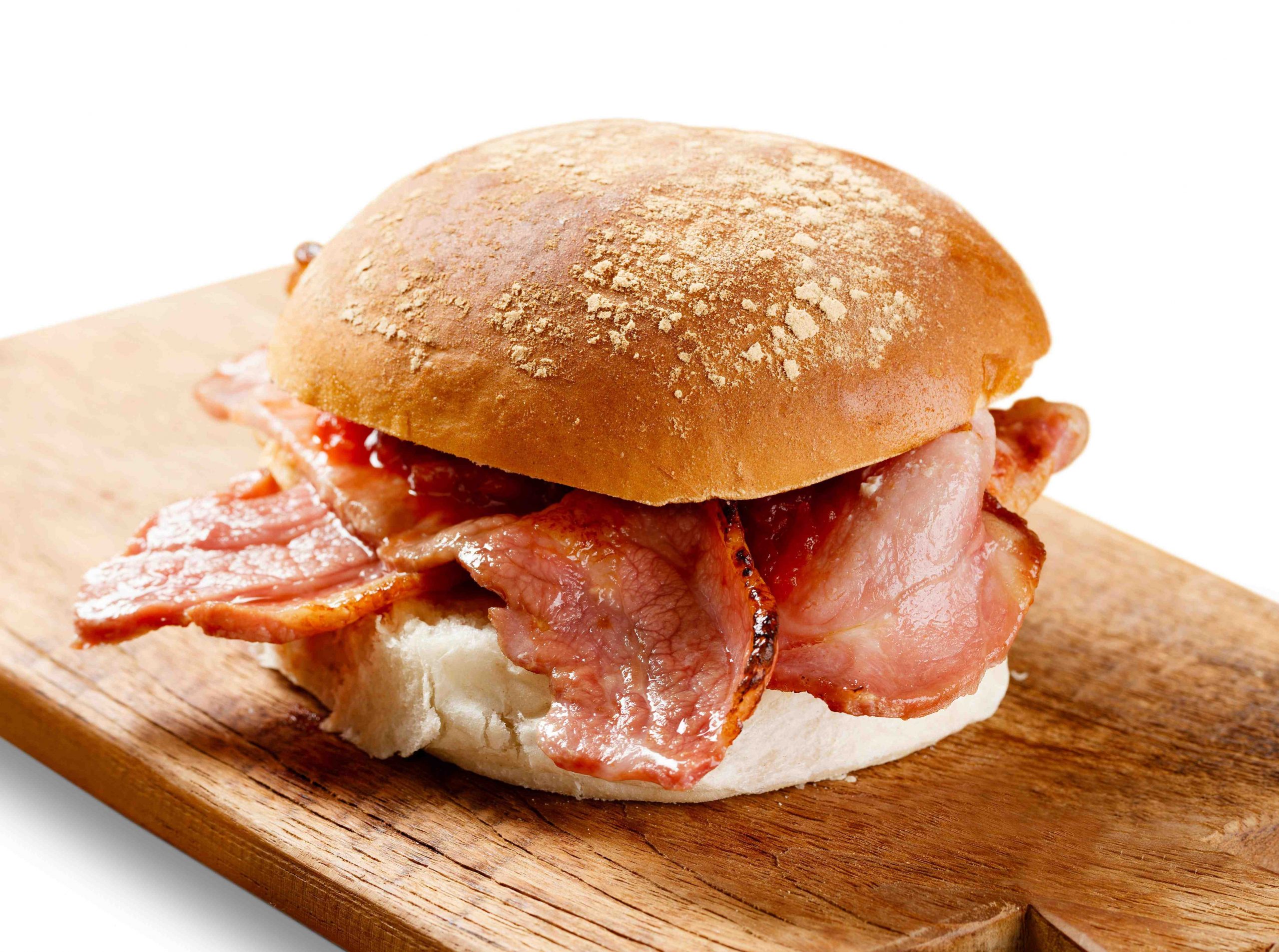
You shouldn’t worry about bacon’s high fat content, especially since the typical serving size is small. Bacon is high in saturated fat and cholesterol, which aren’t as harmful as previously thought. Also, the typical serving size of bacon is small.
Is it OK to eat eggs everyday?
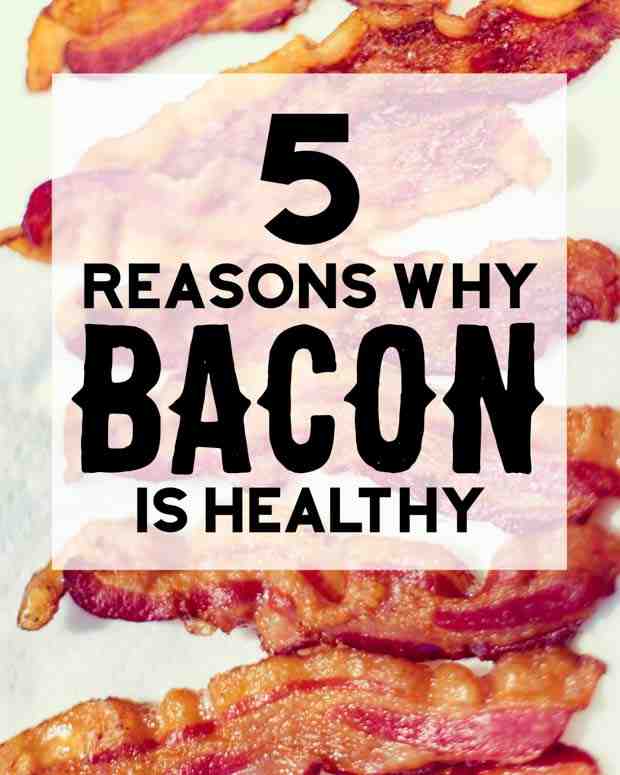
Healthy people can include up to one whole egg per day in a heart-healthy eating pattern. Due to the fact that eggs have tremendous nutritional benefits, are convenient, and are inexpensive, up to 2 eggs per day within a heart-healthy eating pattern are recommended for older adults.
What Happens If You Eat Eggs Every Day? Eating eggs leads to increased levels of high-density lipoprotein (HDL), also known as “good” cholesterol. People with higher HDL levels have a lower risk of heart disease, stroke, and other health problems. According to one study, eating two eggs a day for six weeks increased HDL levels by 10%.
How many eggs a day is healthy?
The American Heart Association recommends up to one egg a day for most people, less for people with high blood cholesterol, especially those with diabetes or heart failure, and up to two eggs a day for older people with normal cholesterol levels and who are trying to be healthy feed.
Can I eat 6 eggs a day?
No, you shouldn’t have 6 eggs in a day. Experts recommend one or a maximum of two eggs a day. Eggs can warm your body from the inside, so it’s recommended to only use one a day during peak summers. Excessive egg consumption can lead to elevated cholesterol levels.
How many eggs a day is too many?
Eating 1-2 eggs a day is safe for most healthy adults, depending on how much other cholesterol is in your diet. If you already have high cholesterol or other risk factors for heart disease, it may be best to eat no more than 4-5 eggs per week.
Is bacon a processed meat?
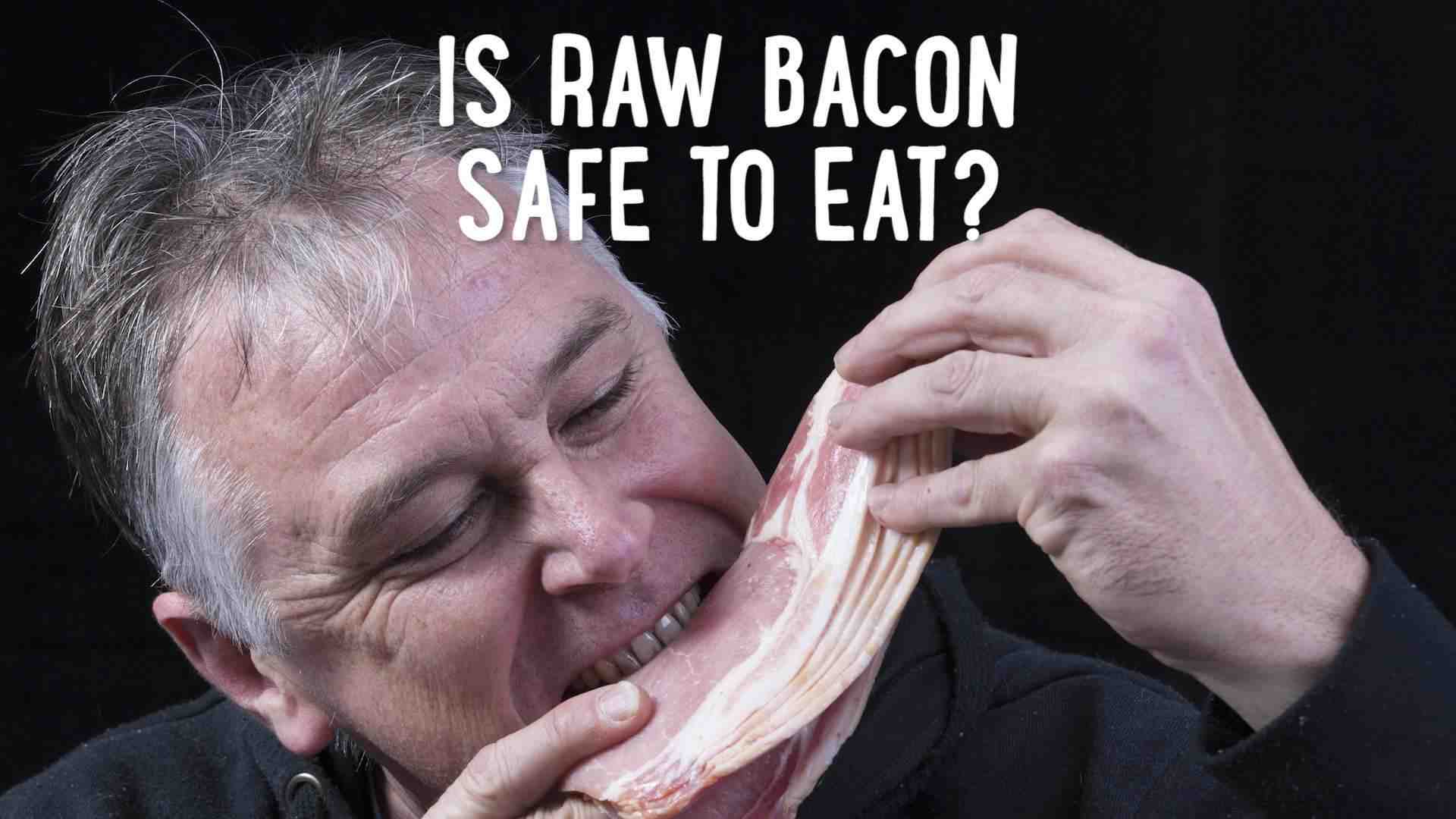
Processed meat is meat that has been preserved by smoking or salting, pickling, or adding chemical preservatives. These include charcuterie, bacon and hot dogs.
Is bacon highly processed? Bacon is a processed meat, but the amount of processing and ingredients used vary between manufacturers. Bacon is made from pork and goes through a curing process where it’s soaked in salt, nitrates, and other ingredients.
Is there a healthy bacon?
While you can’t beat its taste, bacon has traditionally not been the best choice for a protein because it’s high in fat, calories, sodium, and nitrates. Fear not, bacon lovers—there are a few healthier options that taste good too! Your best bacon choice is uncured, low-sodium, center-cut bacon.
Is turkey bacon healthier than pork bacon?
Turkey ham is slightly lower in calories and fat than pork ham and may be a healthier option for people who have special diets or can’t eat pork. However, it’s a processed meat with less protein and more added sugar than regular bacon, and it may contain preservatives that have been linked to an increased risk of cancer.
How do you pick the healthiest bacon?
You should pay attention to this when buying the healthiest bacon:
- Watch your sodium. The FDA says sodium intake should be 2300 mg/day or less. …
- Thick cut versus thin cut. Thick cut means more bacon in fewer slices. …
- Sodium ascorbate means cheap “pumping” was used. …
- Note the bold, but be realistic.
Is all bacon processed meat?
In addition to being considered a red meat, bacon belongs to the dreaded “processed meat” group (even turkey bacon falls into this category. And according to the American Institute for Cancer Research, NO amount of processed meat is considered safe.
What meats are non processed?
The researchers also collected other health data. In the study, unprocessed red meat was beef, lamb, veal, and pork. Poultry included all birds. Processed meat was any meat that was salted, cured, or treated with preservatives or additives.
What are examples of non processed foods?
Some examples of whole foods and foods with minimal processing include:
- fresh, frozen and preserved vegetables and fruits.
- dried, canned, and frozen beans and legumes such as lentils and chickpeas.
- Whole grains like oats, brown rice, barley, and quinoa.
- fresh and frozen poultry and meat.
- fresh, frozen and preserved fish and seafood.
Are all meats processed meats?
Bottom Line: Any meat that has been smoked, salted, cured, dried or canned is considered processed. This includes sausage, hot dogs, salami, ham and bacon.
Sources :
